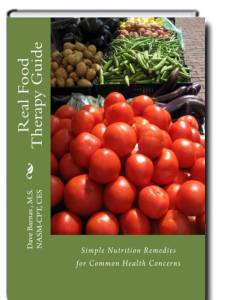 Conventional nutrition wisdom suggests a calorie is a calorie is a calorie. But is this really true? By definition, a calorie is a unit by which energy is measured. Food energy is measured in kilocalories (1000 calories equals 1 kilocalorie). And, one kilocalorie is the amount of heat necessary to raise the temperature of 1 kilogram (kg) of water 1 degree Celsius. So what how does this relate to weight gain, weight loss, etc.?
Conventional nutrition wisdom suggests a calorie is a calorie is a calorie. But is this really true? By definition, a calorie is a unit by which energy is measured. Food energy is measured in kilocalories (1000 calories equals 1 kilocalorie). And, one kilocalorie is the amount of heat necessary to raise the temperature of 1 kilogram (kg) of water 1 degree Celsius. So what how does this relate to weight gain, weight loss, etc.?
Well, from the conventional nutritional scientific perspective of energy, if a calorie is a calorie, then if you consume more calories than you burn, you gain weight. But, if you burn more calories than you consume, you lose weight. Right? Not exactly.
As our understanding of nutritional science has evolved, we realize it’s not that simple.
A calorie is not just a calorie because the source of a calorie (protein source, fat source, carbohydrate source) inherently elicits different effects on the brain and body – some more favorable for health than others.
Let me explain further.
The human body is more efficient at metabolizing and storing calories derived from fat than calories derived from carbohydrate or protein. This means if you consume 100 calories from fat, your body will metabolize it quite differently than if you consume 100 calories from carbohydrates or protein.
More specifically, it is estimated that nearly 33% of the calories consumed from a protein source are burned in the metabolic process, whereas about 25% of the calories consumed from a carbohydrate source are burned in the metabolic process.
In comparison, only 1% of the calories consumed from fat get burned in the metabolic process. Simply put, protein food sources are much more metabolically stimulating than carbohydrates and fat. This means that the effects associated with the same number of calories from different foods have very different effects on the body.
In addition to the different metabolic effects related to different types of calories, probably the most important reason why all calories are not created equal, is because the effects that food sources have on hormones play a huge role in overall health. Let’s take a closer look…
Taking a Closer Look
Consider the following:
~ 105 calories from ¾ of a can of Coke
~ 110 calories from a large apple
~ 120 calories from half an avocado
So, from the three choices above, by calories alone, all these choices are relatively close. But, the effects on the endocrine system (system associated with hormonal regulation) are drastically different. Let’s look at the different affects associated with each calorie source.
The calories from ¾ of a can of Coke are 100% sugar, which is a refined carbohydrate. These sugars elicit a rapid secretion of insulin from the pancreas. Insulin is a storage hormone associated blood sugar regulation and carbohydrate and fat storage. Research suggests that insulin is one of the most critical hormones in weight regulation and plays a large role in the lives of those affected by diabetes. Diabetes now affects nearly one in every ten Americans and the numbers are growing. Some researchers believe this is due to a diet with an excessive consumption of refined sugars and high fructose corn syrup, such as those found in sugary drinks, sweets, etc.
In addition, calories coming in the form of sugar, as found in Coke, have a very powerful effect on the pleasure centers of the brain. Sugars that have a strong effect on the pleasure centers of the brain, when consumed often enough, actual affect the structure of the brain and increase the likelihood of developing an “addicted brain”. That’s why some researchers believe too much sugar too often “hi-jacks” the brain.
Shifting to the apple now. The calories from a large apple are primarily carbohydrate, with a little bit of protein. The apple’s natural sugars are absorbed more slowly into the body and the apple’s fiber content makes the apple more like a welcoming friend to the pancreas as opposed to an abrupt intruder like the sugar from Coke. Plus, the apple provides ample vitamins and minerals that support health body functioning.
The calories from half of an avocado include roughly 11g from fat, 5g
from carbohydrate, and almost 2g from protein. The relatively high fat content is great because it helps the body feel full longer, which decreases the chances of grabbing more food within a few hours. Additionally, due to its composition, it does not wreak havoc on the pancreas by eliciting a strong insulin response for fat storage. Plus, it’s a nice source of fiber, vitamin K, vitamin C, and folate.
Bottom Line
A calorie is not just a calorie because the source of a calorie (protein source, fat source, carbohydrate source) inherently elicits different effects on the brain and body – some more favorable for health than others. From a health perspective, some sources of calories may have more detrimental effects on the brain and body over the long haul, while others may be more beneficial to the brain and body.
 This is one of the reasons I recommend people consider food as a nutrition remedy. In fact, I feel so strongly about the therapeutic effects of food that I addressed the most common health concerns with the Real Food Therapy Guide. This book shows exactly what foods support the alleviation of various health concerns with a unique integration of both Eastern and Western perspectives.
This is one of the reasons I recommend people consider food as a nutrition remedy. In fact, I feel so strongly about the therapeutic effects of food that I addressed the most common health concerns with the Real Food Therapy Guide. This book shows exactly what foods support the alleviation of various health concerns with a unique integration of both Eastern and Western perspectives.
Additionally, since not all calories are equal due to differing effects associated with their source, diet plans require an individualized approach with smart scientific application. After several years of research and in collaboration  with several doctors and dietitians, Y.E.S.-Your Eating Solution, has become a viable option for those looking to optimize their health with nutrition. The Y.E.S. workbook has already received 10, 5-star reviews on Amazon.
with several doctors and dietitians, Y.E.S.-Your Eating Solution, has become a viable option for those looking to optimize their health with nutrition. The Y.E.S. workbook has already received 10, 5-star reviews on Amazon.


